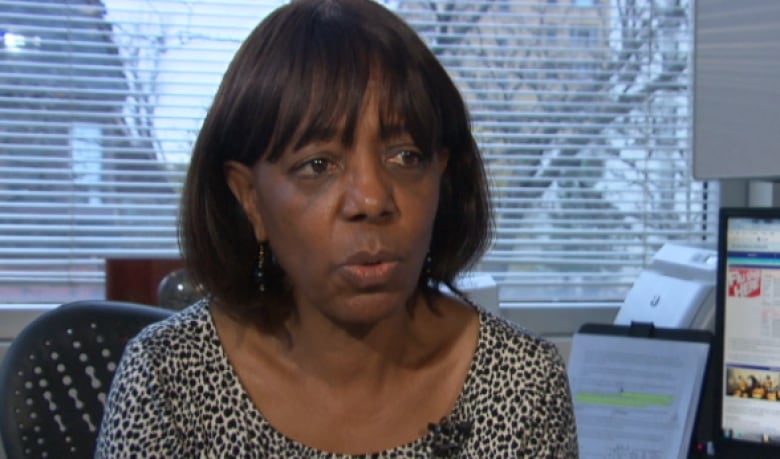Mandatory domestic violence charges too infrequent, women say
'They have called police for help and didn't get it:' women's shelter director
When it comes to domestic violence, when and how police intervene can make the difference between life and death, and that's why all police forces in Ontario have a policy of mandatory charging.
It means police must pursue criminal charges if there are reasonable grounds to do so, even if the victim doesn't want to.
But some women say Ottawa police aren't enforcing the policy, and that lack of enforcement is putting women at risk.
"Kate," who spoke to CBC under the condition that she remain anonymous, says she first sought help from police when her estranged husband showed up at her home in the middle of the night.
He was drunk, crashing into furniture, she says, and she called 911 when she realized she couldn't get control of the situation.
Police arrived and ordered him to leave and sober up, but he came back two more times and even tried to break in through a window, Kate says.
Police showed up again but didn't arrest him.
In the following days, Kate says she was offered help from victim services and was interviewed several times.
'The perpetrator is empowered, and the victim's left exhausted'
She says she told investigators about her history of abuse: how her husband threw a chair at her while she was holding their baby, how he smashed her phone, and how he threatened and choked her several times.
Kate says investigators called him again to warn him, but that didn't stop his stalking behaviours. He circled Kate's home multiple times in a day and dialed her number 20 times in a 24-hour period.
She recorded the phone calls and gave the recordings to police, but detectives told Kate it didn't meet their threshold for criminal charges, she says.
"It's like a complete role reversal. And then he walks up, laughing in my face, saying, 'Well look, I told you I wasn't doing anything wrong. You call police four times, five times, and they do nothing because I'm not wrong.'
"So the perpetrator is empowered, and the victim's left exhausted, which isn't really what you need," Kate says.
'Clearly we still have a ways to go,' women's shelter director says
"Clearly we still have a ways to go in terms of implementing a mandatory charging policy," says Leighann Burns, executive director of Harmony House, a women's shelter.
"I've been working in this field for 25 years and throughout that entire time, women have reported to me time and time again that they have called police for help and didn't get it. [That] they didn't get the help that they needed, that police discounted what they said, or minimized it, or dismissed it, and left without laying charges," Burns says.
She says she's also concerned about statistics that show Ottawa police are laying far fewer domestic assault charges than they did five years ago.
In 2009, nearly 950 people were charged. Last year the number was less than 670, a drop of 30 per cent, despite the fact that the number of cases has remained about the same at an average of 4,500 calls each year.
On mobile? Click here to track the number of domestic assault charges by Ottawa police from 2009 to 2013.
Partner assault unit's resources stretched, police say
Staff Sgt. Isobel Granger, who runs the partner assault unit, says investigators can only proceed with charges if they have enough evidence.

"Just to put it in context for you, we have 19 investigators and we have 4,500 files that come through the office a year. We have a population of close to a million," Granger says.
"One of the other police agencies in southern Ontario has a population of 500,000 and they have 20 investigators. So we are really busy, we are really busy.
"Being an investigator here is a very dynamic situation to be in because there is no downtime. You're busy all the time."
The Ottawa police's partner assault unit has 19 detectives, four staff sergeants and one sergeant to review all domestic assault calls that come in.
Officers are trained to look for a pattern of abuse when deciding if charges should be laid, not only at obvious signs of injury.
Calls are prioritized and the goal is to respond to complainants within 18 hours.
'I feel like I'm the one being persecuted'
That's little comfort for Kate, who is now pursuing a restraining order against her former partner on her own.
"After the whole ordeal, when I think of the police, I feel like I'm left exhausted, frustrated, defeated, embarrassed because they don't believe me," Kate says.
"I feel like I'm the one being persecuted, that they're looking for holes in my story, and just helpless. So why would you bother?"
Domestic violence cases are now being analyzed in a study done out of the University of Ottawa. Abused women who called 911 are being asked if they're satisfied with the police response.
On mobile? Click here to see more information about domestic assault reports to Ottawa police from 2009-2013.
